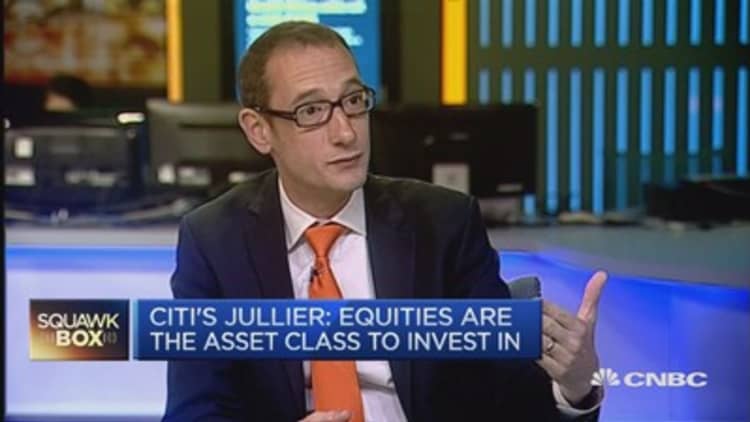
The aim of quantitative easing (QE) might be to increase liquidity in global markets, but it's actually having the opposite effect, according to one analyst, who echoed comments from several financial institutions.
Antonin Jullier, global head of equity trading strategy at Citi, told CNBC Tuesday that the bond-buying policies implemented by central banks including the Federal Reserve and European Central Bank had had a detrimental effect.
"The lack of liquidity is coming from QE, it's one of the consequences...it's sucking it out," he said.
The aggressive stimulus was "one-sided," according to Jullier, who said it was increasing valuations of securities, but not producing more stock flotations or capital increases.
"The net inventory of securities has actually been flat for years now. So there are no new securities available," he added, calling it a period of "de-equitization."
Read More Is market liquidity your number one concern?
Central banks have been purchasing fixed-income assets in secondary bond markets since the global financial crisis of 2008. The aim is to boost liquidity in the banking sector and thus encourage banks to lend to the wider economy. As well as in the U.S. and euro zone, programs have also been launched in Japan and the U.K.
Some economists have lambasted the tactic, however, and more recently market participants have voiced concerns over hefty valuations as well as a lack of liquidity.
Steven Maijoor, the chairman of the European Securities and Markets Authority (ESMA), spoke of a possible liquidity crunch in the euro zone at a Reuters-hosted financial regulation summit last month.

Meanwhile, in November last year, a report by the International Capital Market Association (ICMA) looked at the European corporate bond market and concluded that its liquidity was "rapidly evaporating," mainly due to financial regulation and extraordinary monetary stimulus.
Citi's Jullier added that low liquidity – which is being seen across all asset classes -- was "difficult."
But not everyone is so quick to blame QE for the current state of the market.
Read MoreGoldman: Market going nowhere, so do this...
JPMorgan's Jamie Dimon and Larry Summers, the former U.S. treasury secretary, have both warned that low liquidity is causing wild intraday swings. However, they give other reasons for the moves, such as new rules from regulators.
"The banking system is far safer than it has been in the past, but we need to be mindful of the consequences of the myriad new regulations and current monetary policy on the money markets and liquidity in the marketplace—particularly if we enter a highly stressed environment," Dimon said in the newsletter in April.


